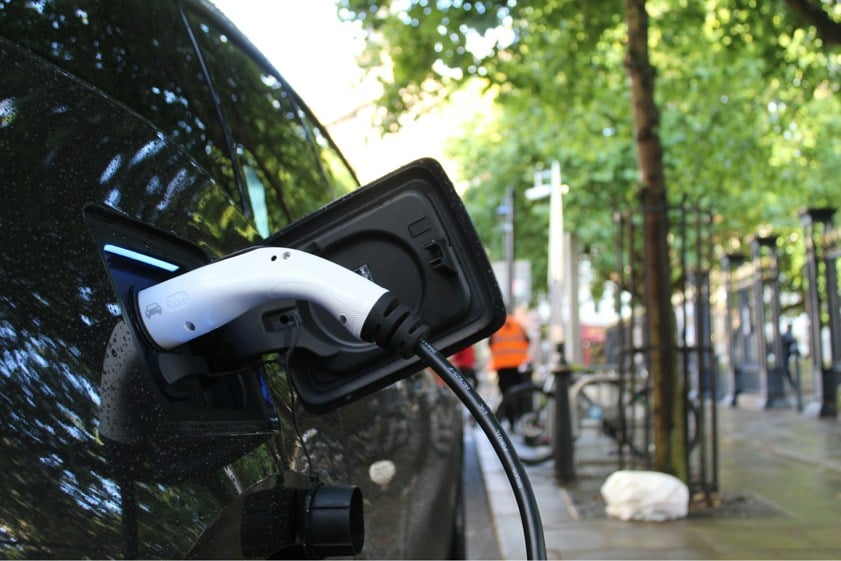
In the quest for a greener planet, the transport sector stands at a pivotal crossroads. The shift towards clean energy vehicles has become more than an option; it's an absolute necessity.
Among the choices are electric vehicles (EVs) and hydrogen fuel cell vehicles (FCVs), each taking a different approach to sustainable motoring.
In this blog, we'll delve into the heart of the electric versus hydrogen debate and compare the two technologies.
We talk about:

Electric vehicles have massively grown in popularity in recent years, and according to ZapMap, there are approximately one million fully electric cars on UK roads.
Electric vehicles use stored electrical energy in batteries to power electric motors, thus propelling the car forward. The entire system is replenished with electricity through charging, either at home or using the public charger network.
Advantages:
- No tailpipe emissions
- Very energy efficient
- Low operating costs
- Extensive charging infrastructure
Disadvantages:
- Battery production and disposal are tricky
- Charging time is time-consuming
- Range limitations compared to traditional vehicles
Hydrogen Fuel Cell Vehicles (FCVs) operate by converting hydrogen gas into electricity, which then powers an electric motor to propel the vehicle.
At the core of this process is the fuel cell, which combines hydrogen with oxygen from the air in an electrochemical reaction that produces electricity, water, and heat as byproducts.
Once produced, the electricity is used immediately to power the electric motor or stored temporarily in a small battery, providing additional power during acceleration.
Hydrogen fuel cell vehicles operate efficiently and emit only water vapour from the tailpipe.
Unlike battery electric vehicles, FCVs can be refuelled with hydrogen in a matter of moments, similar to traditional cars.
Advantages:
- Fast refuelling time that's on par with traditional vehicles
- Only emission is water vapour
- Potential for a large range
Disadvantages:
- Scarce hydrogen refuelling infrastructure
- High costs of hydrogen production
- Efficiency losses in the process
Energy Efficiency - EVs boast a higher well-to-wheel efficiency compared to FCVs. This is because they directly convert electricity from the grid into motion with fewer conversion losses, achieving efficiencies of approximately 60-70% compared to FCVs 20-30%.
Environmental Impact - The environmental impact for both EVs and FCVs significantly hinges on the decarbonisation of the electricity grid and the adoption of sustainable hydrogen production. If both are created from renewable sources, the environmental impact is minimal.
Infrastructure - The current infrastructure for EVs is more developed and widespread than that of FCVs. EVs have a growing network of charging stations that are popping up in urban areas, motorway services, and homes.
In contrast, hydrogen refuelling infrastructure is less established due to higher costs and technical challenges.
Performance and Convenience - EVs are known for their rapid acceleration due to instant torque provided by the motors. However, they can take up to 20 minutes to charge using a rapid charger, which is much slower than refuelling a hydrogen car. Hydrogen cars also offer a longer range per fill-up.
Costs - Initially, both EVs and FCVs tend to have higher purchase prices compared to conventional vehicles due to the high cost of their technologies. Charging an EV generally remains lower than refuelling an FCV with hydrogen due to the current availability of hydrogen in the UK.

There's no denying that EVs have much more market penetration than FCVs. They've taken a big chunk of the industry in the last few years thanks to brands like Tesla.
Comparatively, FCVs are just starting out on their journey. Its technology hasn't properly developed yet and is still very much in the research stage.
Future Potential
For EVs, the future is bright, with advancements in battery technology being key. Improvements in batteries will offer higher energy density, faster charging times, and improved safety compared to current lithium-ion batteries.
For FCVs, the key to unlocking their potential lies in advancements in hydrogen production, storage, and fuel cell efficiency. It needs to become more cost-effective and sustainable in order to become widespread.
Niche Applications
As the industry evolves, both EVs and FCVs will find their unique niches based on their strengths and limitations.
I'd expect EVs to be used for urban and short to medium-range travel, making them ideal personal vehicles and city-based fleets such as taxis and delivery vans. This goes hand-in-hand with the extensive charging infrastructure found in urban areas.
For FCVs, I'd expect to see them in sectors where long-range and quick refuelling, such as heavy-duty transport and long-haul trucking. They come with a longer range than EVs and don't suffer the same weight penalties.
Electric vehicles and hydrogen vehicles are the future, but we've still got some way to go until they're adopted as the norm.
Both are very different, have their own strengths and weaknesses, and will play a big part in sustainable transportation.
Looking for more motoring advice? Nationwide Vehicle Contracts produces a range of blogs on various topics, such as Electric Car Running Costs: Explained and 7 Electric Car Myths You Need to Ignore.
We are also one of the UK's largest car leasing brokers, offering a range of leasing deals to suit your every need. For more information, check out our leasing deals or call us at 0345 811 9595.
Originally posted: 16th February 2024

